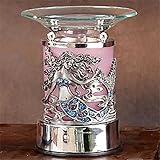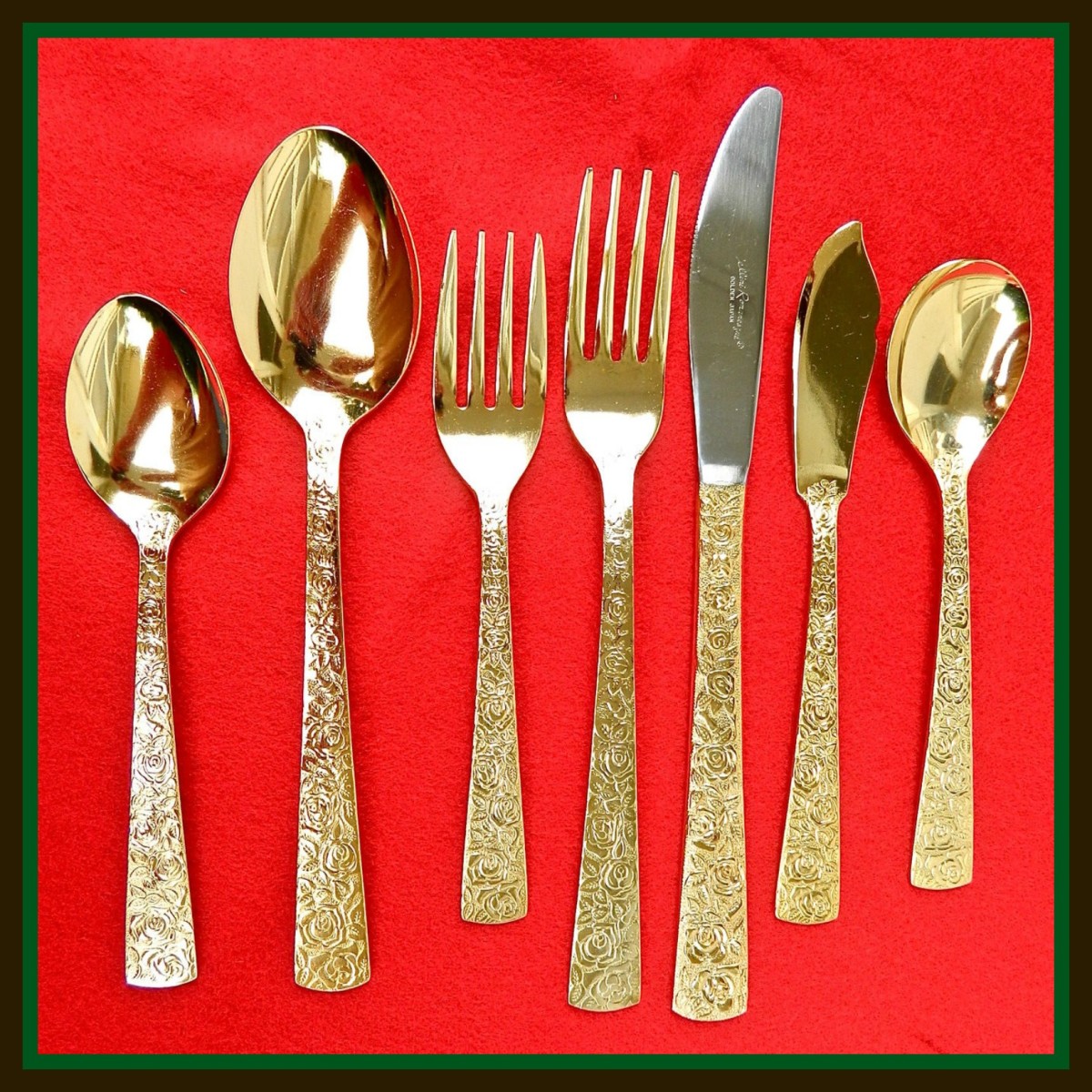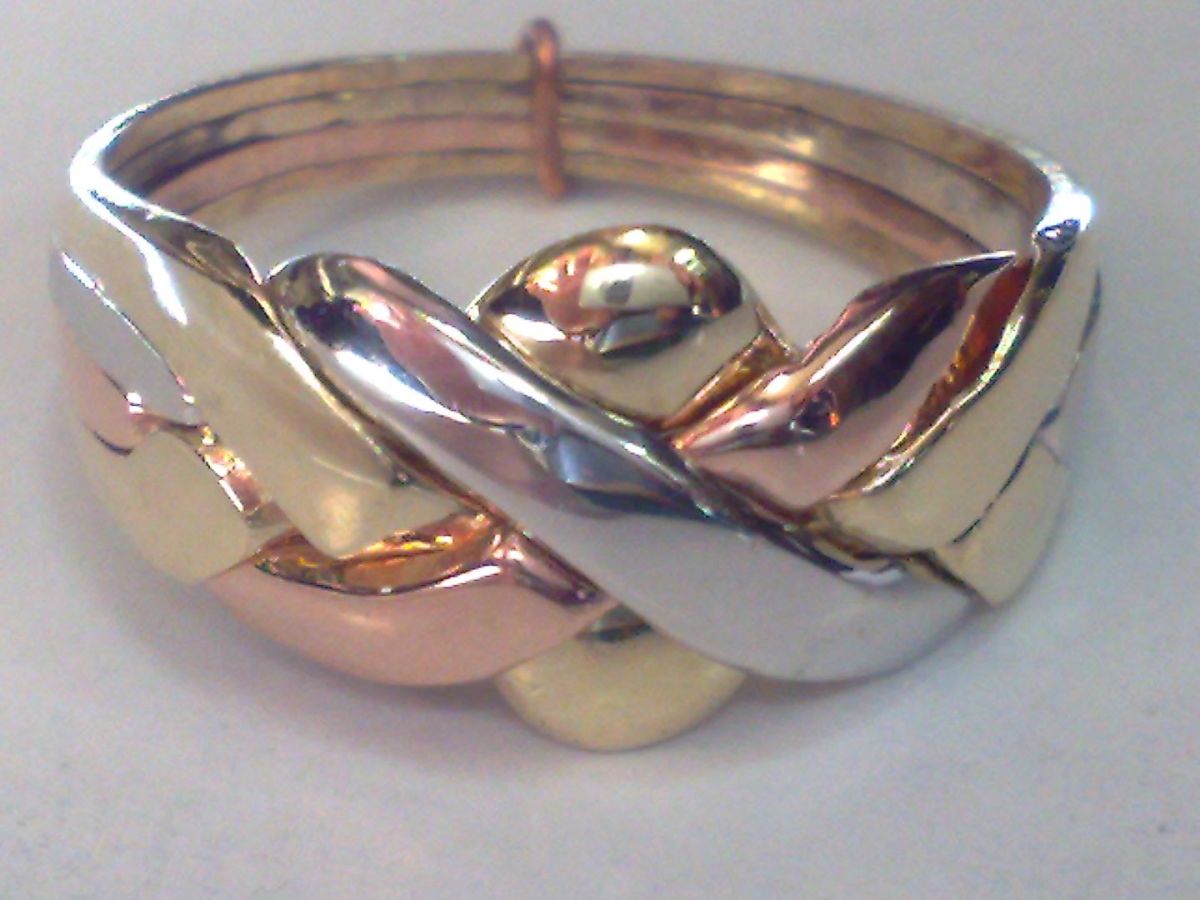About Pewter Ware And Health Hazard Concern In The Alloy Content
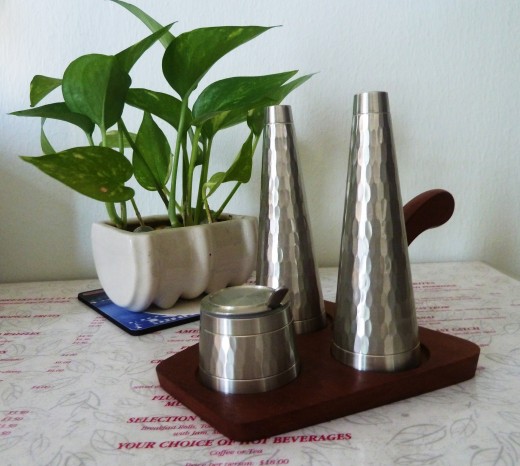
Presence Of Lead Content In Pewter
Pewter drink-ware, tableware, and personal accessories are some of the favorite collections which most of us may have in our home. But before we proceed to use any of the tableware for dining or drinking, it is better to know more about pewter and whether they are free from lead. Lead contents are hazardous to our health.
Pewter is a actually an alloy produced by chemically mixing tin with a few other metals like copper, antimony, bismuth and lead. Pewter is the alloy output after the mixing process. Its melting point is low whereby the percentage of metallic composition contents determine the melting point. Tin is the main metal component used. High grade pewter contains very high percentage of tin metal in the alloy combination. The tin percentage required for high quality pewter can be as high as 85 %. On the other hand, low grade pewter alloy contains high percentage of lead metal as lead price is cheaper and more easily available.
Traditionally low grade pewter had been widely used due to the economic factors related to supply and cost. But when advanced developments in scientific research confirmed that the presence of lead to could be a health hazard metal, the lead contents came under control and was reduced. Pewter drink mugs and tableware may not have lead contents. But it is still advisable to refrain from using pewter wares for dining and drinking unless the products are certified to be free from lead. For health safety, we should check on the product brochure for specifications on the alloy material contents before buying or using pewter tableware.
Pewter alloy being highly ductile, is most suitable for carving and embossing work. During the Middle Ages pewter had been highly prized and used extensively for making tableware and decorative items, but was later replaced when glass-making was developed.
Pewter Products
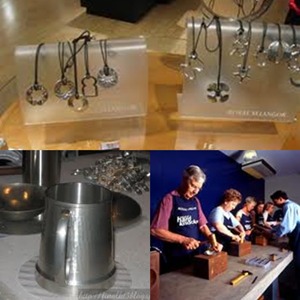
Pewter Table Wares
Today with innovative new technologies and together with skilled and talented craftsman and creative designers, pewter products have gained worldwide recognition as the preferred choice for decorative and essential objects. The selections for gifts or souvenir items can range from creative collectible statuettes and figurines, game figures, models of aircraft, replica coins, pendants, photo frames, mugs, music box, coin box, bookmarks, name-card holder, baby accessories, tableware, and all other artistic creations.
How To Clean Pewter Ware
Pewter is highly reactive with acidic liquid due to the presence of different types of metals used in the alloy composition. Promptly wash them with liquid soap and warm water whenever pewter is exposed or contaminated with liquids such as vinegar or acidic fruit juice. Do not scrub or use abrasive on pewter wares, otherwise scratches will appear and damage the finishing on the product surface. Should also adjust to the use of water that is chemically 'not hard' for washing purposes. Wipe dried immediately after washing. As pewter melting temperature is low, avoid exposure to extreme heat.
HEALTHY FOOD
- HEALTH BENEFITS OF SELECTED FOOD
Information On Special Food Nutrients
Randomly Free To Share
- Randomly Free To Share
Information Resources For Health / Travels / Garden Plants / Lifestyle

